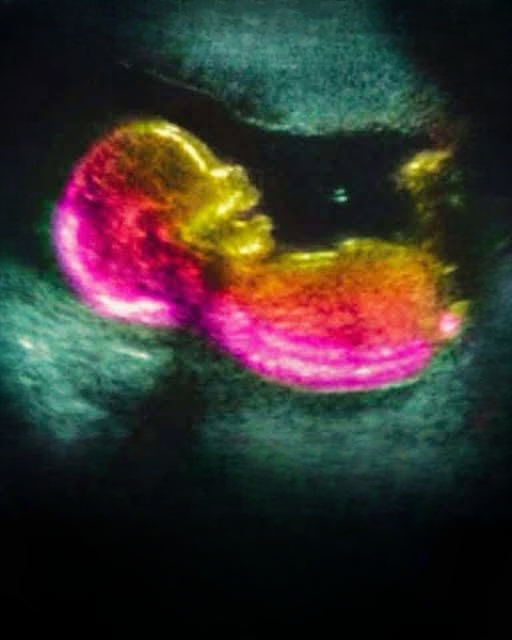A groundbreaking new study is revealing a surprising link between a mother’s gut bacteria and the risk of autism in her child — suggesting that the tiny microorganisms in our digestive system may play a far bigger role in shaping the developing brain than we ever realized. For years, scientists have known that gut microbes influence digestion, immunity, metabolism, and even mood and behavior. But only recently have researchers begun exploring how deeply these microbes might impact neurological development before birth.
The study, led by a team of neuroscientists and immunologists, focused on the maternal microbiome — the vast ecosystem of bacteria in a mother’s gut — and how it could affect the developing fetal brain through immune system pathways. Their findings reveal a fascinating connection between certain bacterial populations, immune signaling molecules, and behaviors linked to autism spectrum disorder (ASD).
ASD is a broad range of neurodevelopmental conditions that affect communication, social interaction, and behavior. While genetics play a major role, researchers are increasingly looking at environmental and biological factors during pregnancy — when the brain is forming — that could influence development.
In this research, the team focused on a molecule called interleukin-17a (IL-17a), an immune signaling protein that normally helps fight infections. But IL-17a can be a double-edged sword: too much, or activity in the wrong context, may affect the developing brain. Using laboratory mice with different gut bacterial compositions, the researchers found that offspring of mothers whose microbiomes triggered stronger IL-17a responses exhibited developmental and behavioral changes resembling autism-like traits in humans.
The scientists then manipulated the mothers’ gut bacteria, sometimes transferring microbiomes between mice or blocking IL-17a activity entirely. Remarkably, when IL-17a signaling was suppressed, the atypical behaviors in offspring largely disappeared. This suggests a direct pathway linking a mother’s gut bacteria, her immune system, and the neurological development of her unborn child.
Although the study used mice, the findings offer important clues about how maternal gut health and immune function may influence fetal brain development. The lead author, Dr. John Lukens, cautioned that human biology is far more complex than mice, and translating these results into medical guidance will require long-term research.
Still, the implications are profound. If similar mechanisms are confirmed in humans, a mother’s gut health could influence not just her own well-being, but also how her child’s brain forms and functions. The maternal microbiome might act as a key mediator between environmental factors — diet, stress, infections — and the molecular processes shaping the nervous system.
Researchers are already looking ahead: identifying specific bacterial species or imbalances that could increase autism risk, and exploring whether probiotics, prebiotics, or targeted diets during pregnancy might safely support healthier immune responses. If successful, such interventions could offer a revolutionary way to support both maternal and fetal health.
Experts emphasize caution, noting that IL-17a is only one piece of a complex puzzle. Gut microbes, immune signaling, genetics, hormones, stress, infections, and countless other factors all interact in ways we are just beginning to understand. “We’re examining one thread in an enormous tapestry,” Dr. Lukens said.
This study adds a powerful chapter to the growing research on the gut-brain axis — how the digestive system communicates with the nervous system to influence everything from mood to cognition. That this relationship may begin before birth is both humbling and exciting. It reinforces earlier findings that maternal inflammation — from infections or autoimmune conditions — can affect fetal brain development. Now, gut bacteria may be driving some of these immune responses.
For expectant parents and healthcare professionals, the message is clear: maternal health is multifaceted. It isn’t just about nutrition and prenatal care; it extends to the microscopic balance of bacteria in the gut. While it’s too early for medical recommendations, a diverse diet rich in fiber, fermented foods, and essential nutrients may help support a healthy microbiome during pregnancy.
Looking forward, researchers hope to conduct large-scale human studies, tracking the microbiomes of pregnant women alongside their children’s development. These studies could reveal whether specific bacterial profiles increase or decrease autism risk, and whether targeted interventions could influence outcomes.
Ultimately, this research isn’t about blame or fear. It’s about understanding how something as small as a bacterium can influence something as complex and extraordinary as the human mind. The work of Dr. Lukens and his team bridges immunology, microbiology, and neuroscience, showing how intimately a mother’s physical, emotional, and microbial health is tied to her child’s development. The trillions of microorganisms in our bodies aren’t silent passengers — they are active partners shaping immunity, mood, and perhaps even the architecture of the brain itself.
